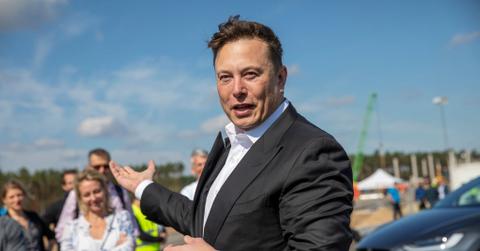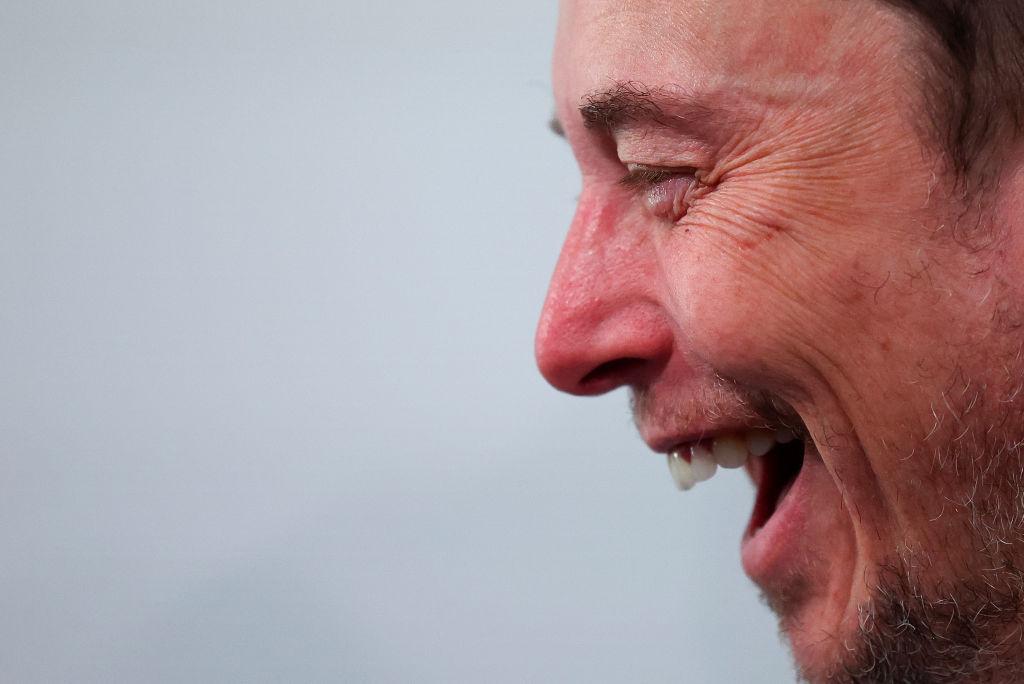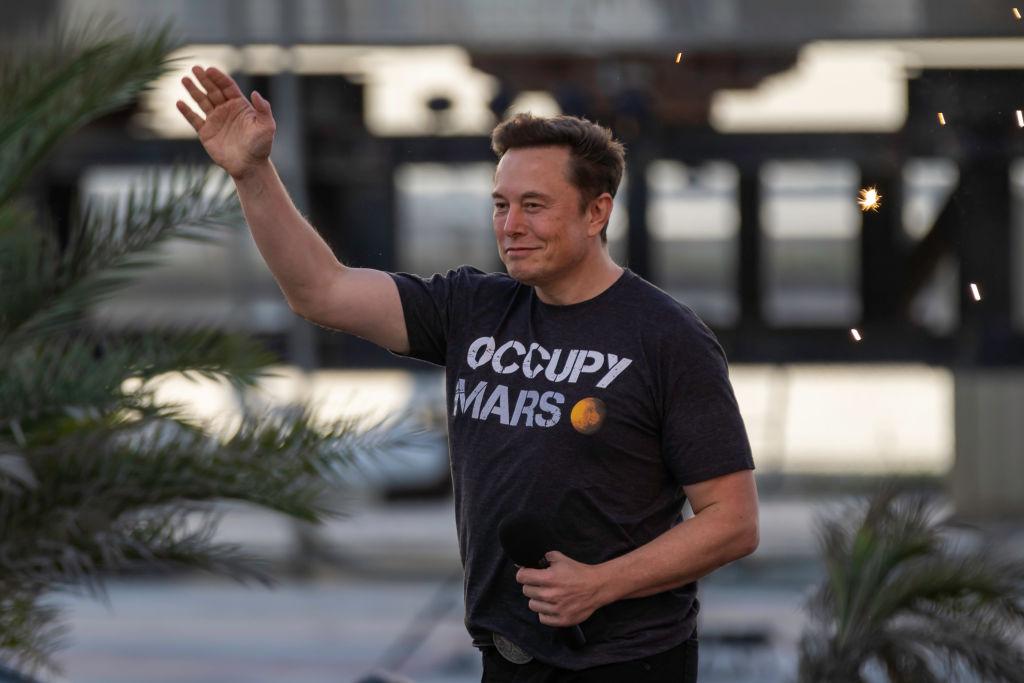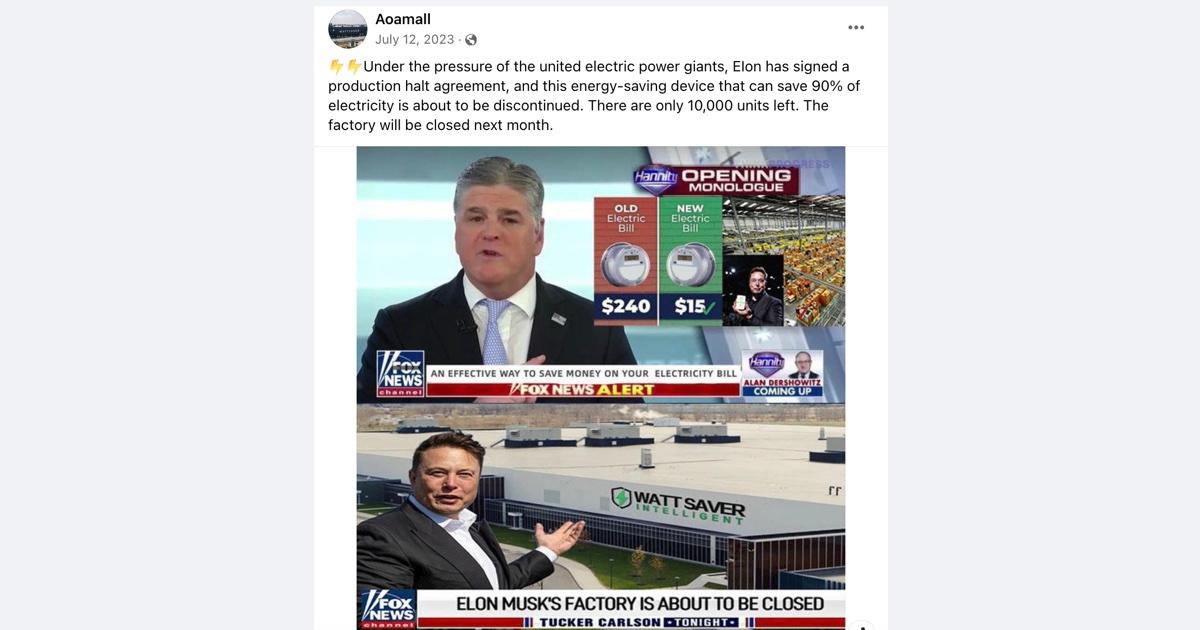Is Elon Musk Really Scamming People With an Energy-Saving Device? We Investigate the Rumors
Published Jan. 4 2024, 4:21 p.m. ET

Tesla CEO Elon Musk has placed himself at the center of a flurry of controversies. And the stench lingers as his name remains attached to an online advertisement, which links him to a strange "energy-saving" device.
This device purports to cut residential electricity bills by up to 90 percent, according to a news report from the Cincinnati-based WCPO. But is the device a scam or a legitimately useful tool?
According to Reuters, there is actually no evidence that Musk is behind the device, which has an oft-changing name (commonly WattSaver or StopWatt). Green Matters is investigating the scam and its potential implications for those who seek to utilize WattSaver's services.

Is Elon Musk selling an energy-saving device, or is it a scam?
Elon Musk is not actually selling an energy-saving device. Per Reuters, a number of fake advertisements for this energy-saving device — which itself is a scam — falsely connect it to Musk.
Some fake advertisements for the device show Elon Musk at the construction site of the Tesla Gigafactory near Berlin, Germany in September 2020, with the background edited to display a factory with the words “WattSaver Intelligent” on it.
The advertisements indicate that a Musk-owned factory is closing, hence the limited quantity of available devices and financial savings available to potential consumers.
Additionally, Fox News confirmed to Reuters that a glowing endorsement for the device from host Sean Hannity proved to be false. Comments from Facebook users attesting to the efficacy and reliability of the device are plentiful. Though, in a rudimentary test, Green Matters discovered many profiles to show red flag signs that these profiles may have been fake, according to criteria recommended by the tech security company McAfee.
The device, which is purported to be no larger than a nightlight, has also been labeled under at least eight names, according to MalwareTips. The dangers for those who fall victim to the scam are many, including identity theft, fire hazard, and of course, no actual savings on one's energy bills.
For those who have cited Musk's alleged brilliance as reason to embrace the device, like those interviewed in the WCPO news report, MalwareTips advises victims of the scam to contact their bank, report the fraudulent company to the authorities, and warn others about the pitfalls of their experience.
While Musk and his Tesla company have been most prominently linked to these energy-saving device scams, perhaps most humorous (and concerning) is Nikola Tesla's name attached to some ads, according to Snopes. Tesla (the human, not the company) died in 1943, a full 80 years before the internet ads bearing his name appeared.
Additionally, Snopes recommends several red flags to keep in mind when seeing similar ads, such as endorsement of the device from Fox News, as well as a testimonial from a former Tesla employee named Dorothy Smith, who Snopes believes is likely a made-up person.

Reviews of the energy-saving device falsely connected to Elon Musk are surprisingly positive — and likely fake.
Though MalwareTips recommends scam victims leave negative reviews of the device and its name online, the ever-evolving, multitude of names for the scam strategically makes it difficult to pin down truthful assessments that would otherwise alert potential victims of the scam.
Indeed, the aforementioned Facebook post about the device is rife with potentially fake profiles attesting to the merits of the device.
Among the more enthusiastic comments: "I HAVE THESE!! LOVE LOVE THEM MY ELECTRIC BILL KEEPS GOING DOW [sic]," from one Facebook user whose profile is full of conspiracy theories and text posts in all-caps.
Other comments and reviews are less easily detectable to the average social media user. When we consider making a purchase, we often rely on reviews to inform our confidence in making the transaction, according to research published in Frontiers in Psychology.
With many normal-appearing profiles enthusiastically claiming they have these devices in their own homes, that the devices have reduced their energy bills, and that Elon Musk is brilliant, it remains difficult for the average user to discern which products are scams and which are legitimately endorsed by the media companies and celebrities they trust.
